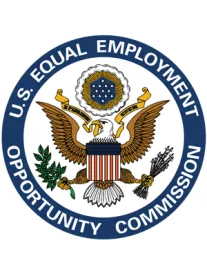Employers, human resource professionals, and employment attorneys all have the same burning question on their minds – what is the Trump administration’s Equal Employment Opportunity Commission (EEOC), with newly appointed Acting Chair Victoria A. Lipnic, going to do?
An important part of this conversation is understanding the ways in which the EEOC is able to wield its agency power. In other words, some EEOC actions and regulations are directly attributable to the agency itself, while other EEOC actions find support in our existing laws and their judicial interpretation.
Two events on the horizon help illustrate this difference. The first is the Employer Information Report EEO-1, bringing changes to large employers’ reporting requirements, beginning next year. The second involves the matter of whether Title VII’s discrimination provisions apply to claims alleging sexual orientation or gender identity, an issue working its way through several federal courts with key decisions expected soon.
Changes to EEO-1 reporting, first proposed over a year ago and since adopted, require most federal contractors and large employers to provide data on pay ranges and hours worked alongside demographic information. This new data must be reported starting March 31, 2018. Methods of collecting data are administrative requirements of the EEOC alone, and are thus the type of regulations most susceptible to change under a new administration. The majority of EEOC commissioners are still Democrats—which means that immediate changes to this requirement may not occur. However, March of 2018 is a long way off and as Trump appointees shift the agency balance, there is ample time for reworking matters like reporting requirements, which flow from the EEOC’s own regulatory actions.
In contrast, determining the applicability of Title VII’s protections to sexual orientation and gender identity is a question currently before several courts. The outcome of these cases are not as susceptible to changes by the EEOC under a new administration. For example, the Seventh Circuit Court of Appeals (covering Illinois, Indiana, and Wisconsin) is currently rehearing a case determining whether or not Title VII covers sexual orientation discrimination. Unlike an EEOC regulation or interpretation, a federal circuit court ruling that sexual orientation is covered by Title VII will make that the law of the land in the states of that federal circuit, unless and until the Supreme Court rules otherwise, or the language of Title VII itself is changed. The EEOC itself cannot take action to change any such court ruling.
To summarize the distinction, the EEOC can eliminate certain reporting requirements just as easily as the EEOC can implement them. In contrast, the EEOC will have limited power to make changes if a court holds that our laws as currently written apply to sexual orientation discrimination.
The two examples above illustrate the difficulty in predicting how the EEOC may change under a new administration. Regulatory burdens have the potential to decrease, but may be accompanied by a judicially-driven expansion of employee protections. Additionally, while the courts may conclude that Title VII covers sexual orientation and gender identity, the EEOC still has the power to limit allocation of resources to large systemic investigations on matters like sexual orientation discrimination. However, if court holdings expand the scope of Title VII protections, individual employee lawsuits are likely to follow, irrespective of whether or not the EEOC takes action.
In summary, employers should avoid making assumptions regarding the impact of a new administration on the EEOC. It is not a cabinet-level agency and its actions are largely determined by the votes of its bipartisan commissioners. Therefore, expect EEOC changes to occur at a slower pace than other administrative bodies, like the National Labor Relations Board (NLRB).




 />i
/>i

